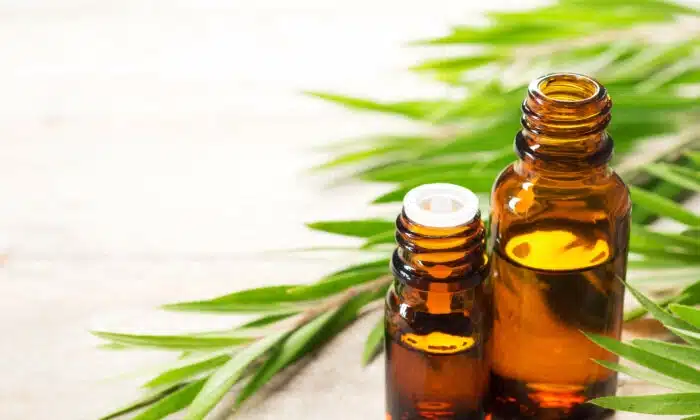Tea Tree Oil: A Natural Remedy for Acne, Eczema, and Psoriasis

Frustrated by the harsh side effects or lackluster results of conventional acne medications? A new study suggests an aromatic alternative could be the answer for those struggling with inflammatory skin conditions.
After analyzing data from 29 studies, researchers found that tea tree oil stands out as a safe and effective treatment for combating blemishes, eczema flare-ups, and even stubborn psoriasis plaques. With its antibacterial, anti-inflammatory, and antiviral properties, the pungent essential oil derived from tea trees could offer relief for millions affected by skin conditions.
Common Acne Meds Linked to Health Problems
Many commonly used acne medications have been found to cause adverse reactions. For years, benzoyl peroxide has been the go-to ingredient in many over-the-counter acne-fighting products, including Proactiv and Clearasil. However, such products can contain cancer-causing levels of benzene under certain conditions, such as being stored or handled at high temperatures, according to a report from Valisure, an independent laboratory.
Other studies have linked products containing isotretinoin, sold under several brand names, including Accutane, to an increased risk of psychiatric conditions, including depression. Also, pregnant women are advised not to take isotretinoin, as it can harm the developing fetus.
Treatment options for other inflammatory skin conditions have also been controversial for some patients.
Tea Tree Oil Emerges as Top Natural Remedy
In the analysis of 29 studies focusing on the use and efficacy of essential oils for inflammatory skin conditions, the research team found that tea tree oil stood out as not only the most studied essential oil but also likely the most effective one for treating various inflammatory skin issues. They noted that tea tree oil works well due to its antibacterial, anti-inflammatory, antiviral, and antifungal properties.
While tea tree oil was not as effective as benzoyl peroxide products, the research showed that it caused fewer adverse reactions overall. The research team discovered that people who used tea tree oil in addition to other products, such as adapalene gel, experienced better results.
For instance, a 72-year-old woman with severe scalp eczema had been treating her condition with an antifungal shampoo and olive oil, but with little improvement; she still experienced extreme dryness, flaking, and itching. However, when she switched to a homemade shampoo and scalp soak containing essential oils, including tea tree oil, her condition improved considerably. After seven months of daily treatment, her condition cleared up completely, and her hair grew back, without any adverse effects.
“Individuals who experience poor results with a conventional acne treatment may consider enhancing their treatment by combining it with [tea tree oil] to achieve better outcomes and acceptability,” the research team wrote.
While some adverse effects were reported with the use of essential oils, such as mild skin dryness, mild burning, and redness, these typically disappeared within 30 minutes of use. No study reported serious or severe adverse effects.





